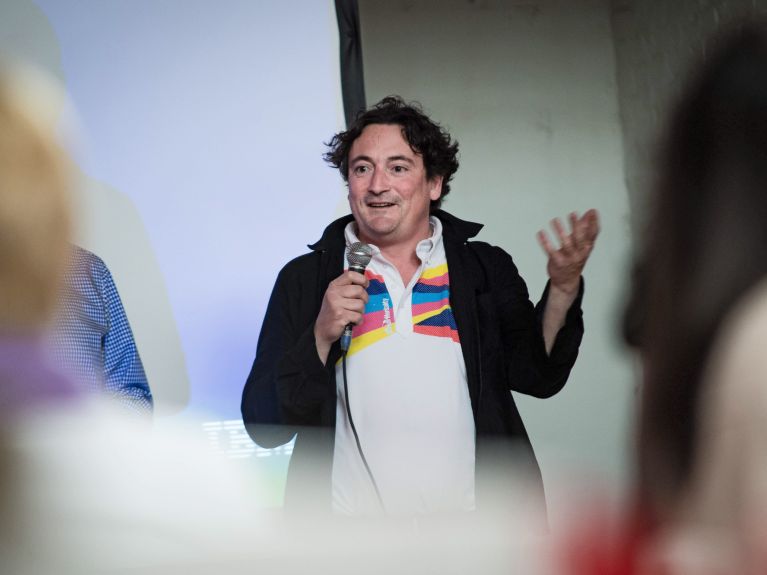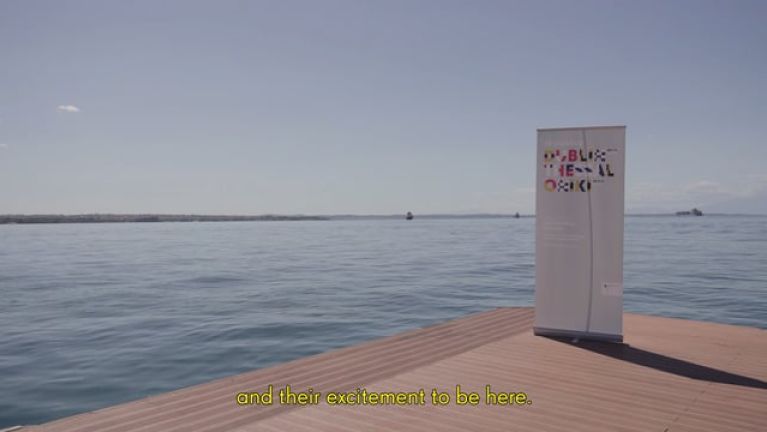Re:publica goes Europe
The digital conference is becoming more European: There are now offshoots in Dublin and Thessaloniki. Where will it go next?
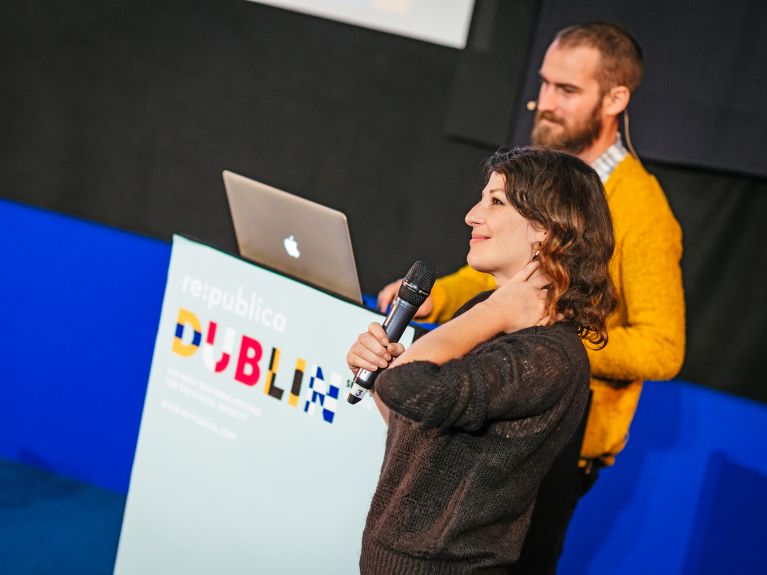
There are a great many conferences for digital and technological topics – but only one like re:publica. Since it was launched in 2007 it has become an obligatory annual event for activists, start-up founders, hackers and entrepreneurs. And now re:publica has grown beyond Berlin. Five FAQs on the series “re:connecting Europe”.
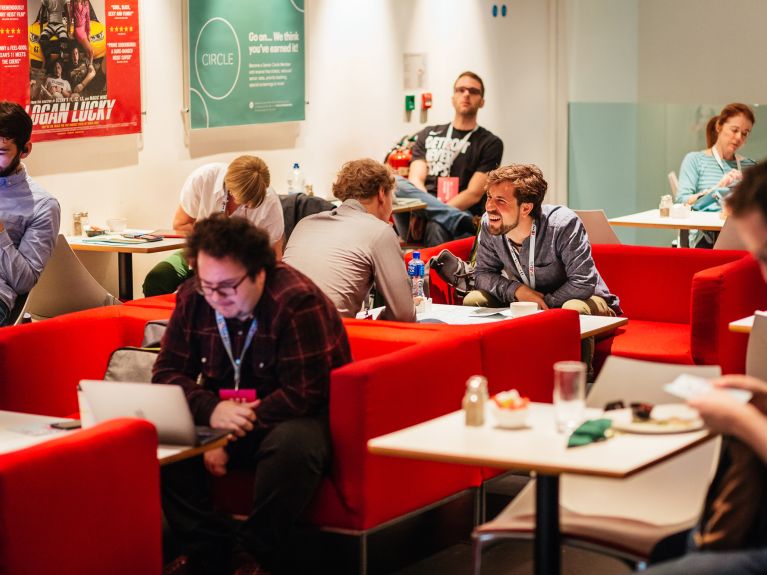
Why are the organizers of re:publica also holding conventions in Ireland and Greece?
September 2017 saw the second two-day conference in Dublin, followed shortly thereafter by the first re:publica in Thessaloniki. “We have been receiving requests and invitations to come to other cities for many years,” says founder and Managing Director Andreas Gebhard. The core idea behind the series “re:connecting Europe” – supported by the German Federal Foreign Office – is to strengthen synergies. “Across Europe there are many creative minds who are not yet working together, or only to a limited extent.” Yet dialogue is urgently needed, according to the organizers – precisely in times when cohesion in Europe is crumbling.
Dieses YouTube-Video kann in einem neuen Tab abgespielt werden
YouTube öffnenThird party content
We use YouTube to embed content that may collect data about your activity. Please review the details and accept the service to see this content.
Open consent formHow are the offshoots linked to the re:publica in Berlin?
One thing is clear: Berlin will remain the “mothership”. Compared to the programme and visitor numbers there, the conferences in Dublin and Thessaloniki are smaller in scale. Dublin welcomed some 250 visitors in 2017, Thessaloniki 450, who were able to listen to around 60 lectures and debates. Gebhard explains the thematic strategy as follows: “On the one hand, we want to take key themes and people from the Berlin community to new places. Yet, on the other, we want to sound out the most important topics in the guest region and reflect them back to Berlin.” To this end re:publica cooperates closely with partners in the respective countries. It succeeds in combining the “external perspective” with the “local viewpoint”, says Irish start-up founder Eoin Kennedy in praise. As such, in Dublin the problem of high rents and a lack of open urban space was discussed, among others.
We are starting to establish a common culture.
Why do we need more analogue meetings in the digital age?
“The Internet is becoming ever more fragmented, because countries exercise control over their citizens in different ways,” says Jillian York, activist at the Electronic Frontier Foundation, an American non-governmental organization that champions consumer rights and privacy in the digital space. In 2017, the foundation featured at all three re:publica conferences and is convinced that real meetings are necessary to “overcome the barriers” that are increasingly being raised online. Legal expert Sam Toland, who took part in a discussion round in Dublin, takes a similar stance: “We are starting to establish a common culture.” Tanya Lokot, lecturer at Dublin City University, is likewise impressed, having gained the impression that visitors to re:publica “are truly interested in cohesion in a large Europe.”
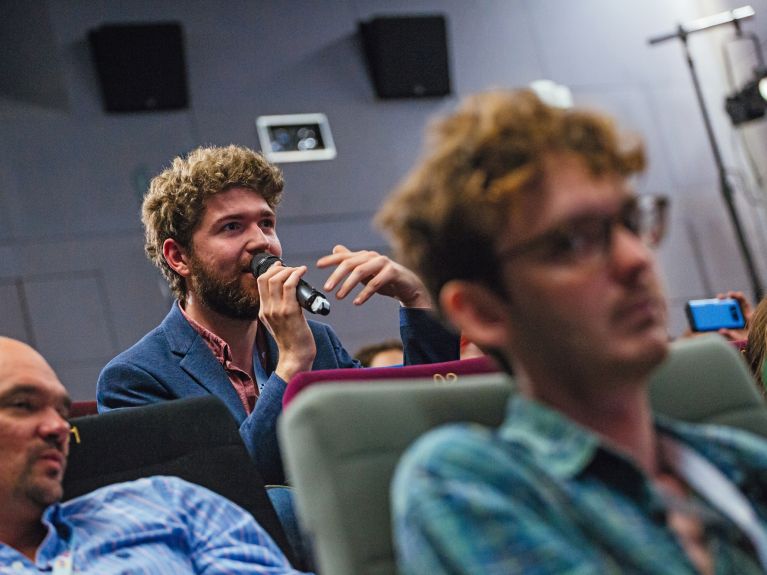
Why Dublin and Thessaloniki?
There is a surfeit of conferences and congresses in many European capitals. “We prefer to go to regions where we have a chance of being visible,” says Gebhard. Dublin is an established tech hub, and many large companies are based there. Thessaloniki on the other hand is a pulsating student city. And hopefully more cities will follow. “We would like to continue the project ‘re:connecting Europe’ and visit further places in Europe.”
Are there plans to expand the project beyond Europe?
Yes, but they are not yet ripe for discussion. Gebhard mentions the USA and Africa. “We already have numerous contacts there, especially in countries south of the Sahara.” Research is still being done and decisions are still to be made, but the Berliners appear determined to conduct the debate on the digital future not just in Europe, but across continents.
